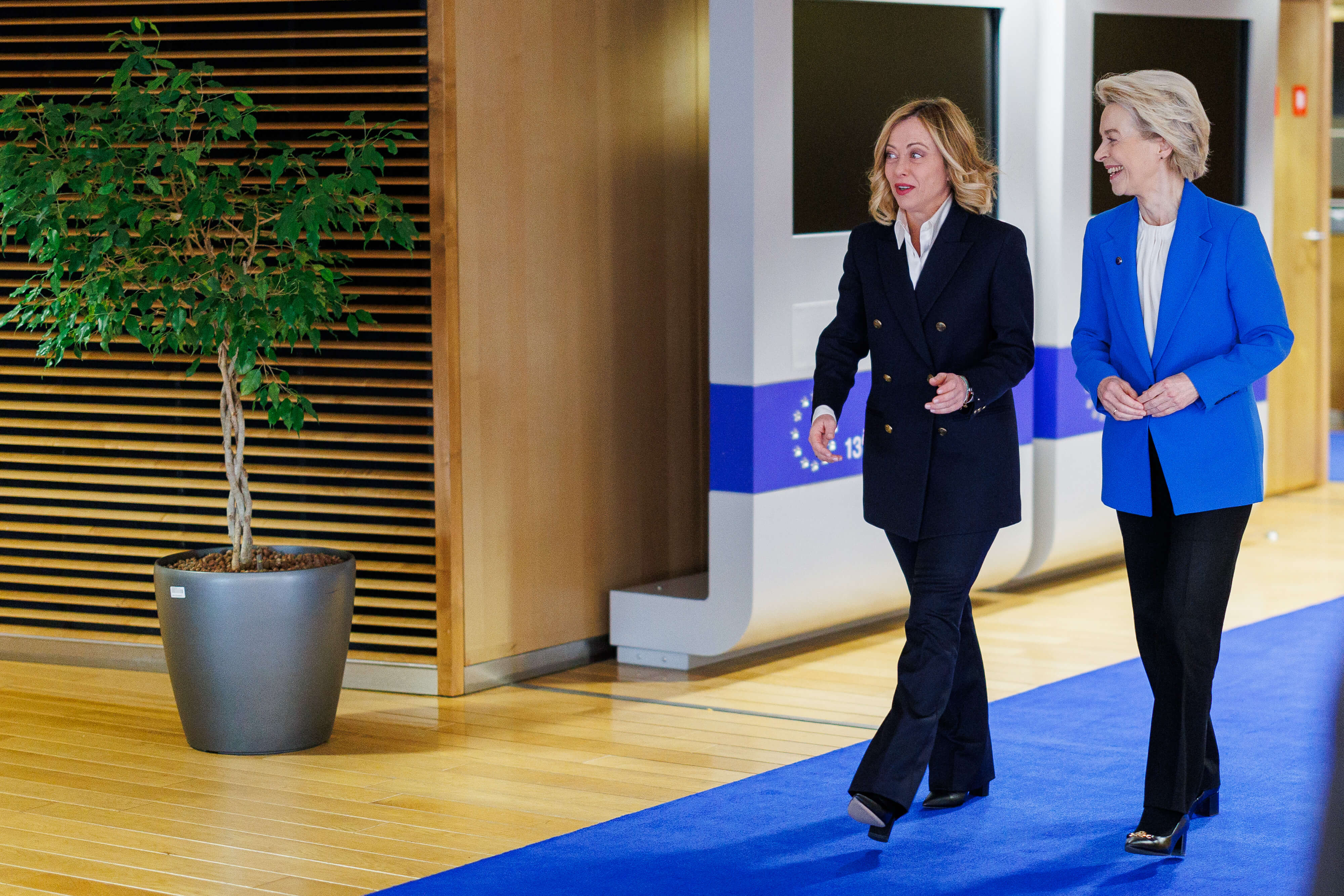The Italian government is impatiently waiting for the courts to decide the fate of the experiment it is conducting with Albania regarding extraterritorial centres for the reception of migrants.
By the end of February, the European Court of Justice is due to deliver a judgement on the project, which has been accompanied by a political storm in Italy from the outset but at the same time has received many approvals from individual European governments.
The latter see the Italian-Albanian arrangement as a patent that they could also use in their own country to resolve the politically extremely sensitive issues of asylum and the return of illegal migrants.
“We’re moving forward, we won’t abandon the work in Albania,” Antonio Tajani, head of Italian diplomacy, said last Monday.
First of all, his government and Prime Minister Giorgia Meloni do not want to lose more than the EUR 650 million they have invested in building and equipping two migrant centres in Albania.
Prime Minister Meloni and her colleague, Albanian Prime Minister Edi Rama, have concluded an agreement in November 2023, according to which illegal migrants who are intercepted at sea on their way to Italy are to be accommodated in Albania while their status is checked.
Resistance in Italy and the EU
While the two governments worked very enthusiastically on the project, the arrangement was followed by controversies, both in Italy and in the EU, as it sets a precedent that many claim is in breach of European regulations on asylum and the humane treatment of migrants.
However, since last autumn, two centres in Albania have been ready to accept migrants. Since then, however, Italian courts have stopped the transfer of illegal migrants to these centres three times—the last time in early February.
Giorgia Meloni's government shows no signs of abandoning the pioneering project
Giorgia Meloni's government shows no signs of abandoning the pioneering project. First of all, a large sum of money has been invested, but no tangible reason for spending is yet apparent, as the two centres on the Adriatic coast are still empty.
Furthermore, the conservative government does not want to abandon the project, as it is an important example of its policy of tightening access to illegal migrants. It has also become an important point of political confrontations in which both the government and opposition groups see an opportunity.
In this context, Prime Minister Meloni even accused the courts of having political motives when they decided to stop sending illegal migrants to centres in Albania.
"If some judges want to govern, they should run for elections and govern," she said, evaluating court decisions as "harm to the nation."
The number of illegal migrants is growing
The efforts of Meloni's government are supported by the fact that the first data on the number of illegal migrants trying to reach Italy point to an increase in this wave in 2025.
Since the beginning of the year, almost 4,000 migrants have arrived in Italy, two and a half times more than in the same period in 2024. If this trend continues, it will mean a sharp increase in numbers in 2025 and a reversal of the declining wave of 2024.
Last year, slightly more than 65,000 migrants came to Italy, two times less than in 2023
Last year, slightly more than 65,000 migrants came to Italy, two times less than in 2023.
The decline in the wave of migration is undoubtedly a politically favourable circumstance for the right-wing Meloni government, and it is proof of the effectiveness of its restrictive measures against illegal immigration.
However, if the trend of a sharp increase in migrant numbers continues in the coming months, the government will undoubtedly use the resistance to its "Albanian" project as proof that its policy is correct.
Trust in European partners
In the meantime, pending the ruling of the European Court of Justice, the government in Rome is considering partially changing the purpose of the centres in Albania in order to give them some sort of function.
They could be transformed into centres to house only those migrants whose asylum applications have been rejected and who would wait for deportation to the countries from which they came in Albania, in centres under Italian jurisdiction.
 Georgia Meloni is relying on the support of the European Commission and Ursula von der Leyen, who has so far spoken favourably of the Italian-Albanian model
Georgia Meloni is relying on the support of the European Commission and Ursula von der Leyen, who has so far spoken favourably of the Italian-Albanian model
In any case, the Italian government is expecting broader European support for its model for tackling the migrant crisis, which relies heavily on a wave of increasingly dominant policies that are also leading to restrictions in this area.
Expectations arise, in particular, from the forthcoming elections in Germany on 23 February and the return of the conservative government, whose leaders have announced a tightening of migration laws.
Meloni is also relying on the support of the European Commission and its head, Ursula von der Leyen, who has so far spoken favourably of the Italian-Albanian model. Whether and how strong this support is will become clear very soon, as the European Commission will present a proposal for a new approach to dealing with illegal migrants and asylum in March.
If, as expected, the model of the "return centres," similar to the model of the Italian centres in Albania, is included in these proposals, the government of Georgia Meloni will receive a significant incentive for the project, from which it expects an important political gain.